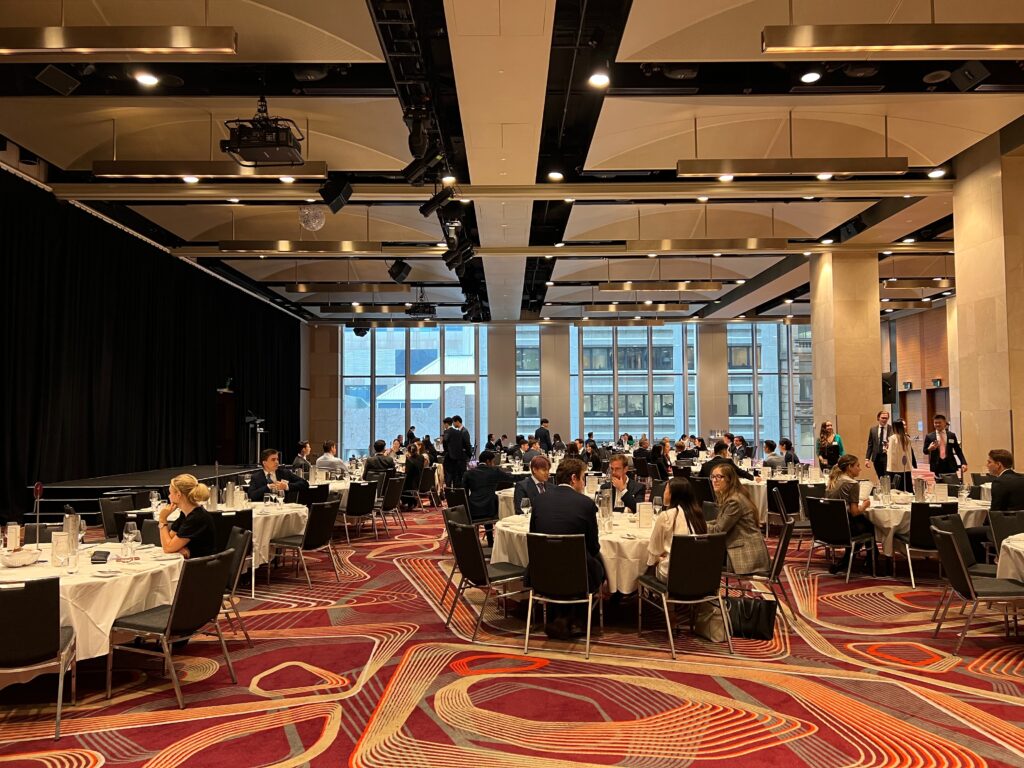Choosing the right venue is a critical aspect of planning a successful conference. The perfect conference venue should accommodate various needs and preferences, ensuring a memorable and inclusive experience for all attendees. In this article, we will delve deeper into the three essential elements of exceptional conference venues: accessibility, atmosphere, and amenities. By examining these aspects in greater detail, event organizers can make informed decisions that lead to outstanding conferences.
Accessibility
Promoting accessibility is a vital component of organizing a successful conference. A fully accessible venue ensures that individuals with disabilities can participate without barriers. To create an inclusive environment, take these factors into account:
Wheelchair access:
The venue should offer ramps, elevators, and wide doorways to accommodate wheelchairs and other mobility devices. Check for wheelchair-accessible seating areas and ensure there are clear paths to and from the stage or presentation area.
Accessible restrooms:
The venue should have designated restrooms with grab bars, adequate turning space, lowered sinks, and other necessary adjustments for attendees with disabilities.
Signage:
Clear and easy-to-read signs with large fonts and high contrast should be placed throughout the venue to guide attendees. Braille signage and tactile maps can also be provided for individuals with visual impairments.
Seating arrangements:
The conference space should offer flexible seating arrangements to accommodate individuals with different accessibility needs. Ensure there are designated areas for wheelchair users, and consider providing seating options with adjustable heights or removable armrests.
Assistive technology:
The venue should provide assistive listening devices, closed captioning, or sign language interpreters for attendees with hearing impairments. Additionally, consider offering materials in alternative formats, such as large print or electronic documents, for individuals with visual impairments.
Clear paths:
Ensure that all walkways and paths are free from obstacles and are well-lit to facilitate navigation for individuals with visual impairments.
Sensitivity training:
Encourage staff members to undergo sensitivity training to better understand and accommodate the needs of attendees with disabilities.
Communication:
Clearly communicate the accessibility features of the venue in pre-event materials, such as registration forms and event websites, to provide attendees with the necessary information to plan their visit.
Atmosphere
The atmosphere of a conference venue plays a vital role in creating a positive and engaging experience for attendees. A well-designed space can foster networking, collaboration, and learning. To establish the right atmosphere, consider the following aspects:
Lighting:
Ensure the venue has adequate natural and artificial lighting to create a comfortable and inviting environment. Opt for venues with large windows or skylights to maximize natural light during daytime hours. In addition, utilize a combination of ambient, task, and accent lighting to enhance the visual appeal and functionality of the space, while also providing adjustable lighting options to accommodate different event formats and preferences.
Acoustics:
Proper acoustics are essential for minimizing background noise and enhancing the clarity of presentations and discussions. Look for venues with soundproof walls, high ceilings, and appropriate sound-absorbing materials, such as curtains or acoustic panels. Additionally, consider hiring a professional audio engineer to optimize sound quality and address any acoustic challenges unique to the venue.
Temperature control:
A well-ventilated and climate-controlled space will keep attendees comfortable throughout the event. Make sure the venue has a reliable heating, ventilation, and air conditioning (HVAC) system, and consider providing adjustable controls in breakout rooms. Proactively address potential temperature fluctuations by providing fans or portable heaters if necessary.
Décor and aesthetics:
The visual appeal of the venue, including furniture, artwork, and color schemes, can contribute to a professional and engaging ambiance. Opt for a venue with a versatile design that aligns with your event’s theme and branding. Consider customizing the space with your organization’s colors, logos, or other visual elements to create a cohesive and memorable experience for attendees.
Flexible layouts and furniture:
The ability to customize the layout and furniture arrangement in a conference venue allows you to create an environment that best suits your event’s goals and objectives. Select a venue that offers a variety of seating options, such as modular furniture, comfortable chairs, and adjustable-height tables, to cater to different event formats, including presentations, workshops, and networking sessions.
Interactive spaces:
Encourage collaboration and networking by providing interactive spaces within the venue. This could include designated networking zones, lounges, or casual seating areas equipped with charging stations, where attendees can connect, share ideas, and recharge during breaks.
Spatial flow:
Consider how attendees will move through the venue, from the entrance and registration area to the main conference hall and breakout rooms. A well-designed spatial flow can enhance the overall event experience by facilitating smooth transitions between sessions, minimizing congestion, and promoting attendee interaction.
Outdoor spaces:
Access to outdoor areas, such as courtyards or terraces, can provide a refreshing break for attendees and offer additional networking opportunities. Choose a venue with well-maintained and inviting outdoor spaces, and consider incorporating them into your event program, such as hosting receptions, coffee breaks, or networking activities in these areas.
By focusing on these aspects of atmosphere, event organizers can create a comfortable, engaging, and memorable conference experience that encourages networking, collaboration, and learning among attendees.
Amenities
A great conference venue should offer a wide range of amenities to meet the diverse needs of attendees and organizers. Some essential amenities to consider include:
Audio-visual equipment:
High-quality audio-visual equipment, such as projectors, microphones, and speakers, is crucial for presentations and communication. Make sure the venue provides a reliable and user-friendly system, along with on-site technical support to address any issues that may arise during the event.
Wi-Fi and Internet access:
Fast and reliable Wi-Fi enables attendees and organizers to stay connected, access event materials, and engage on social media. Confirm that the venue’s network can handle the expected number of users and offers secure connections. Additionally, consider providing charging stations and dedicated Internet access points for event staff and presenters.
Catering:
Quality catering services or the option to bring in external catering will accommodate various dietary needs and preferences, enhancing the overall event experience. Work with the venue or catering provider to create diverse menus that cater to different tastes, allergies, and dietary restrictions. Also, ensure that there are sufficient seating and dining areas for attendees to enjoy their meals comfortably.
Breakout rooms:
The venue should offer breakout rooms for workshops, smaller discussions, or one-on-one meetings. These rooms should be flexible in terms of layout, with the option to reconfigure the space as needed. Make sure the breakout rooms are equipped with the necessary audio-visual equipment, and provide appropriate signage to guide attendees to each session.
Parking and transportation:
Ample parking and convenient transportation options, such as shuttle services, should be available for attendees. Evaluate the parking capacity of the venue, and if necessary, arrange for additional off-site parking with shuttle services. Also, consider the proximity of public transportation options to ensure easy access for those not driving.
On-site or nearby accommodations:
Providing lodging options either on-site or in close proximity to the venue can make the event more accessible and convenient for attendees. Establish partnerships with local hotels to offer discounted rates for conference attendees, and provide clear information about accommodation options in pre-event communication.
Security:
A safe and secure environment is crucial for the comfort and peace of mind of attendees. Make sure the venue has appropriate security measures in place, such as surveillance cameras, controlled access points, and on-site security personnel.
Event signage and branding opportunities:
The venue should offer spaces for event branding, signage, and promotional materials to enhance visibility and create a cohesive event experience. Work with the venue to identify high-traffic areas for banners, posters, and digital displays that showcase your event’s branding and key messages.
Storage and logistical support:
A successful conference often requires a significant amount of materials and equipment. Ensure that the venue provides adequate storage space and logistical support for the setup, teardown, and management of event-related items.
On-site support staff:
A dedicated team of on-site staff can help ensure that your event runs smoothly. Confirm that the venue provides experienced event coordinators, technical support, and catering staff to assist with any logistical or technical issues that may arise during the conference.
By considering these essential amenities, event organizers can create a comprehensive and positive experience for conference attendees, ensuring that all needs are met and expectations exceeded.
In conclusion By considering these essential elements, event organizers can ensure a positive, inclusive, and memorable conference that caters to the diverse needs of all attendees.

